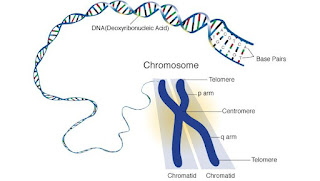 |
Headline from a debate about vaccine hesitancy, from December 2020. |
I keep getting into debates with people about the safety and efficacy of vaccines. I’m not talking about anti-vaxxers (though I’ve encountered plenty of them), but level-headed, rational people who genuinely have doubts.
Usually their doubts about vaccines come from dubious sources, but there’s so much misinformation out there, often coming from people with the letters M.D. or Ph.D. after their names, that I can understand why it’s confusing.
So let me engage in what is sometimes called “both-sides-ism” (a disparaging term, of course) and consider, briefly, the pluses and minuses of vaccines. While I’m at it, I’ll include some points specific to the Covid-19 vaccines.
Let’s start with the pluses, shall we?
- Vaccines are the single greatest public health innovation in the history of medicine. They’ve saved millions of lives.
- Vaccines completely eliminated smallpox from the planet. They have nearly (but not quite, due to anti-vax resistance) eliminated polio.
- The new mRNA vaccines for Covid-19 are remarkably effective, have very few side effects, and are easy to modify as the virus itself mutates over time.
- Vaccines protect us so thoroughly against childhood infections that many formerly common infections–including measles, mumps, and Haemophilus influenza–have almost disappeared.
- Child mortality from infectious has plummeted in countries with robust early childhood vaccine programs.
- The vaccine against human papillomavirus (HPV) will prevent many thousands of cases of cervical cancer, throat cancer, and other cancers, saving lives for decades to come.
- Vaccines train our immune system to recognize and fight off infections, in many cases stopping the infection before we even have symptoms.
I could go on, but the bottom line is that vaccines continue to save millions of lives every year. They also dramatically reduce non-fatal illnesses, sparing people a great deal of suffering as well as long-term harms caused by some infections. (For example, mumps can cause permanent hearing loss.)
Given all of these benefits, you might wonder why everyone doesn’t get every vaccine available. Well, some people do, and part of the answer is simply that we don’t have enough vaccines for everyone, and many countries lack the public health infrastructure to deliver vaccines. But there are a few very small minuses, so let’s consider the downsides of vaccines:
- The shot (or “jab”) hurts a little bit, and your arm might be sore for a day.
- In very rare cases with some vaccines, some people might have allergic reactions. One example is that some flu vaccines are manufactured in chicken eggs, and people with egg allergies might react to those.
- In a few rare cases, the live polio virus vaccine has caused some people to get polio. This vaccine was discontinued in the U.S. decades ago.
- In rare cases, some people might have an immune response to a vaccine that causes ongoing inflammation. This includes the Covid-19 vaccine. However, the risk is much smaller than the risks associated with an actual infection.
That’s pretty much it. I hope it’s clear that the pluses far outweigh the minuses, but I imagine that some people looking at this list are wondering why I didn’t include a host of other supposed harms of vaccines, such as an increased risk of autism.
That’s because vaccines don’t cause autism or any other neurological disorder, as I’ve written before. Studies involving hundreds of thousands of people have been done to investigate this possibility, starting in the early 2000s, and all of the science points the same way: vaccines do not cause autism.
This supposed risk, and others like it, are inventions of the modern anti-vaccine movement. I won’t go into the history of the anti-vax movement here (I’ve done that before, many times), except to point out that many people promoting anti-vax misinformation are making lots of money selling “cures” for problems that don’t exist in the first place.
Anti-vaxxers continue to invent new harms caused by vaccines, and spread these claims on social media. Even with no evidence whatsoever, some of these claims catch on, because - well, the Internet.
Now back to the title of this column: are there really two sides to the vaccine debate?
Well, no.
Among doctors, scientists, and public health professionals, virtually everyone agrees with my first point in the “pluses” list above. However, we all recognize that when a foreign substance (a vaccine) is injected into one’s body, it’s possible that something unexpected might happen, and we must continually monitor vaccines so that we’ll know if something goes awry.
Let me end with an analogy. Seat belts in cars have been around for decades, and they’ve prevented millions of injuries and deaths. And yet people have argued (and probably still do) that it’s possible that wearing a seat belt might cause harm, for example if the belt jams and one cannot escape a burning car after an accident. (This seems to happen all too often in movies.) Thus you can’t argue that wearing a seat belt is 100% risk-free. Even so, wearing a seat belt is a really good idea, because the benefits are so much greater than the risks.
The same is true of vaccines. There might be some very, very small risks, but the benefits vastly outweigh them. And modern vaccines are safer than ever. There’s no serious debate about that.

